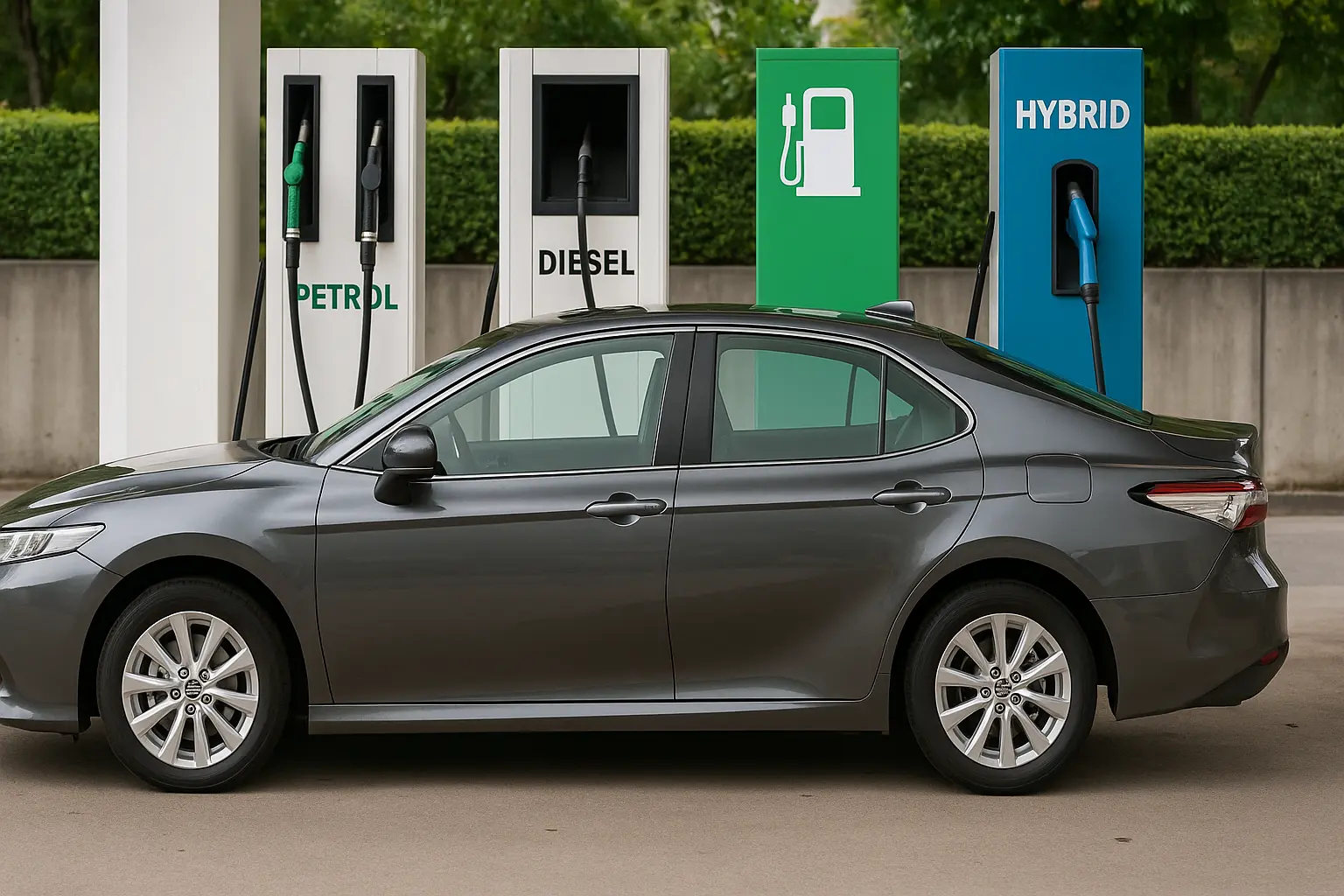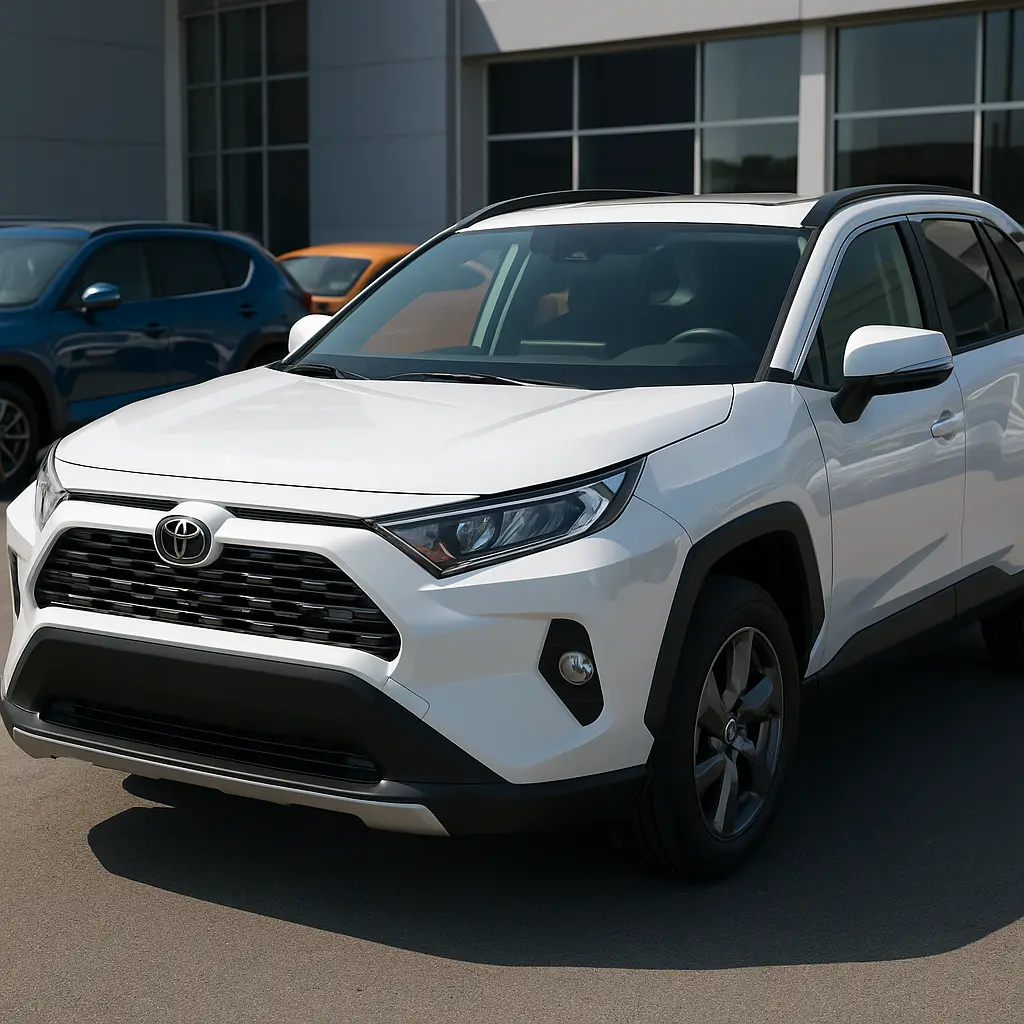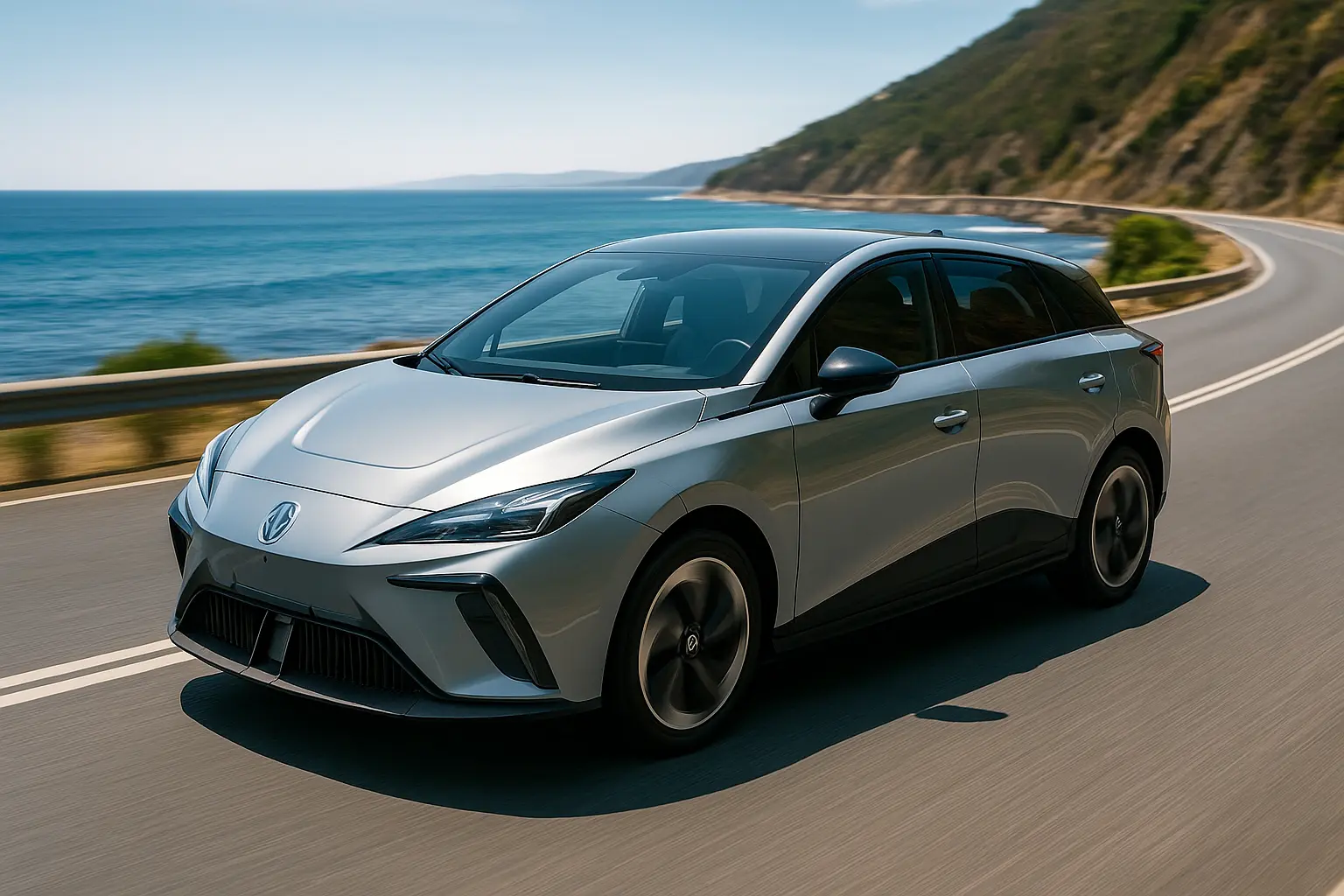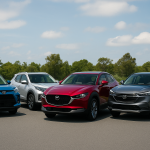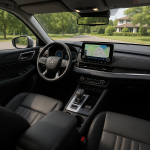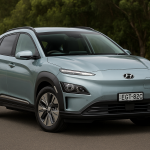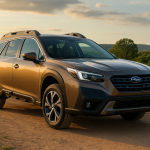Choosing the right car fuel type has never been more complex in Australia. A decade ago, the choice was often limited to petrol or diesel, but today’s car buyers are navigating a much wider landscape. With hybrids and electric vehicles (EVs) entering the mainstream, understanding how each option fits your lifestyle, budget, and driving habits is essential.
This guide provides a deep dive into the four main car fuel types in Australia—petrol, diesel, hybrid, and electric—with insights on costs, efficiency, ownership, and the future of motoring.
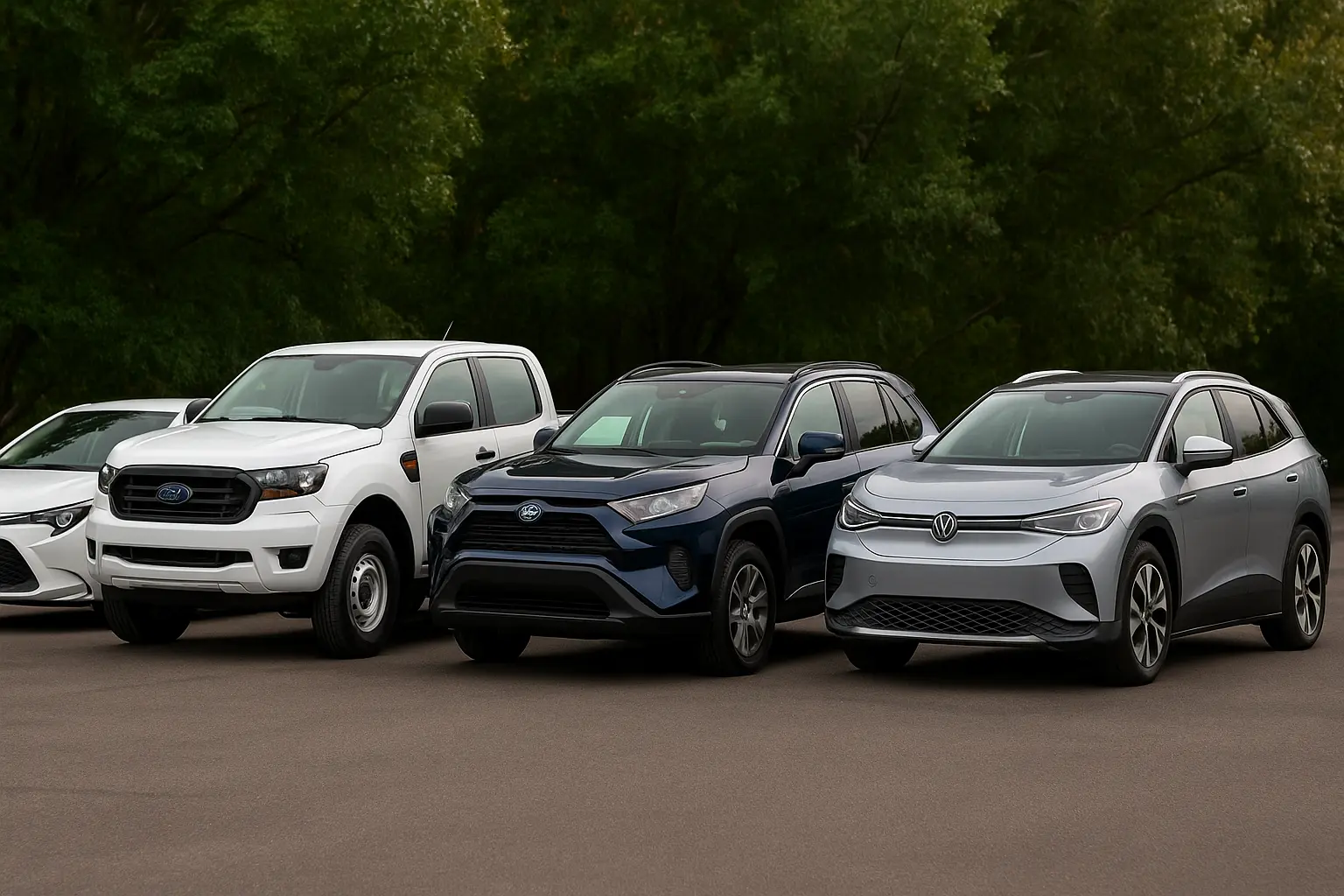
Understanding the Basics of Car Fuel Types
Fuel type determines how your car generates power, which in turn affects everything from running costs to environmental impact. Petrol and diesel are conventional internal combustion fuels, while hybrids blend combustion with electrification, and EVs run solely on batteries.
In Australia, the choice you make will be influenced by:
- Fuel prices (which fluctuate regionally and over time)
- Driving conditions (urban vs outback, city commuting vs towing)
- Government policies and rebates
- Infrastructure availability (like EV charging networks)
Let’s break each fuel type down in detail.
Petrol Cars: Still the Most Popular Choice
What Are Petrol Cars?
Petrol cars are powered by internal combustion engines that burn unleaded petrol. They are the most common vehicles on Australian roads and offer a wide variety of options across hatchbacks, sedans, SUVs, and performance cars.
Advantages of Petrol Cars
- Lower upfront cost compared to hybrids or EVs
- Widespread availability of petrol stations in metro and regional areas
- Variety of options – from budget hatchbacks to luxury sedans and SUVs
- Smooth and quiet drive compared to diesel
- Cheaper maintenance than diesel engines
Drawbacks
- Lower fuel efficiency compared to diesel or hybrid
- Higher running costs if fuel prices rise
- More emissions compared to hybrids and EVs
Ideal Buyers
Petrol cars suit city commuters, small families, students, and anyone seeking a lower purchase price with predictable servicing needs. For example, popular choices include the Toyota Corolla, Mazda CX-3, and Hyundai i30.
Diesel Cars: The Towing and Touring Specialists
What Are Diesel Cars?
Diesel engines use compression ignition and are renowned for their torque and fuel economy, particularly in larger vehicles like SUVs and utes.
Advantages of Diesel Cars
- Fuel efficiency – particularly on highways and long trips
- High torque – great for towing caravans, trailers, or boats
- Durability – diesel engines often last longer when maintained well
- Better resale value in some markets, especially for 4x4s and utes
Drawbacks
- Higher upfront cost than petrol cars
- Servicing costs can be more expensive due to complex engine components
- Diesel fuel price volatility can impact running costs
- Not ideal for short city commutes – particulate filters can clog
- Declining popularity due to stricter emissions regulations
Ideal Buyers
Diesel cars are best for long-distance drivers, tradies, farmers, and towing enthusiasts. Popular models include the Toyota Hilux, Ford Ranger, and Isuzu MU-X.
Hybrid Cars: The Bridge Between Petrol and Electric
What Are Hybrid Cars?
Hybrid cars combine a petrol engine with an electric motor and battery. Depending on the system, the electric motor either assists the petrol engine (mild or standard hybrids) or powers the car independently for short distances (plug-in hybrids).
Advantages of Hybrid Cars
- Excellent fuel efficiency – especially in city driving with start-stop traffic
- Lower emissions compared to petrol and diesel
- No need for external charging in standard hybrids
- Smooth driving experience with regenerative braking
- Government incentives available for some models
Drawbacks
- Higher purchase price than petrol-only cars
- Battery replacement costs down the line (though most come with long warranties)
- Plug-in hybrids require charging to maximise benefits
- Not as fuel-efficient on long highway drives as diesel
Ideal Buyers
Hybrids suit eco-conscious city drivers who want lower fuel bills without fully committing to EVs. Popular Australian hybrids include the Toyota Prius, Toyota RAV4 Hybrid, and Honda CR-V e:HEV.
Electric Cars: The Future of Driving
What Are Electric Cars?
EVs are powered solely by electric batteries and motors, eliminating the need for petrol or diesel. With increasing model availability and government support, EVs are rapidly gaining traction in Australia.
Advantages of Electric Cars
- Zero tailpipe emissions – the cleanest fuel option available
- Low running costs – electricity is cheaper per kilometre than fuel
- Government rebates and incentives in many states
- Low maintenance costs – fewer moving parts compared to combustion engines
- Instant torque for quick acceleration
Drawbacks
- Higher upfront cost – though prices are dropping as more brands enter the market
- Limited charging infrastructure in regional and remote areas
- Longer charging times compared to refuelling petrol/diesel
- Battery degradation over time – though modern EV batteries are improving
- Range anxiety – drivers worry about running out of charge
Ideal Buyers
EVs are suited to urban drivers with access to home or workplace charging, and those looking to lower their carbon footprint. Popular choices in Australia include the Tesla Model 3, Hyundai Ioniq 5, and BYD Atto 3.
Fuel Cost Comparisons in Australia
One of the biggest considerations for car buyers is ongoing running costs. On average (as of 2025):
- Petrol: Around $2.00 per litre in metro areas
- Diesel: Slightly more expensive, around $2.10 per litre
- Hybrid: Uses about 30–50% less fuel than petrol equivalents
- EVs: Charging at home can cost as little as $0.25–$0.35 per kWh, significantly cheaper per kilometre
The break-even point depends on how much you drive. High-mileage drivers often benefit from hybrids or EVs, while occasional drivers may find petrol still more cost-effective.
Environmental Impact: Choosing a Greener Path
- Petrol: Moderate emissions, not the cleanest choice.
- Diesel: More CO2 per litre but better efficiency per km travelled.
- Hybrid: Reduced emissions, particularly in urban use.
- EVs: Zero tailpipe emissions, but carbon footprint depends on electricity source.
Australia’s shift towards renewable energy will make EVs increasingly cleaner over the next decade.
The Future of Car Fuel Types in Australia
The Australian automotive landscape is undergoing rapid change:
- EV adoption is rising, driven by falling prices and better charging networks.
- Hybrids remain a strong transitional option, especially for city buyers.
- Diesel may decline as emissions regulations tighten.
- Petrol will remain relevant, but efficiency improvements will be key.
Final Thoughts: Which Fuel Type Is Right for You?
- Choose Petrol if you want affordability and convenience.
- Choose Diesel if you tow, travel long distances, or live rurally.
- Choose Hybrid if you mostly drive in the city and want better efficiency.
- Choose Electric if you want the cleanest option and have access to charging.
Each fuel type has its place in Australia’s motoring future. The best choice depends on your lifestyle, budget, and driving patterns.
Leave a comment
Your email address will not be published. Required fields are marked *


